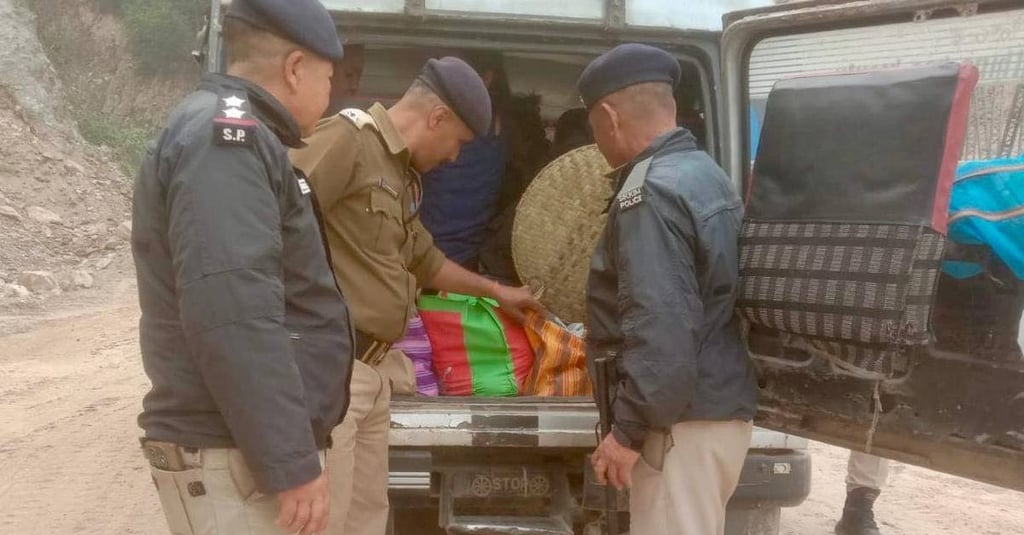Pakyong Police’s anti-drug campaign winning hearts, brings hope for a safer tomorrow
In many cases, people are coming forward on their own to ask for help. This includes several first-time users and minors who are being referred to counselling and detox centres.
LOCAL


The police in Pakyong district have taken strong and steady steps to fight the rising problem of drug use and trafficking. Since March 20, 2025, a special anti-drug campaign has been in full swing, led by Superintendent of Police Ms. Dhan Maya Subba. The campaign is not just about catching offenders—it is also about saving lives, guiding the youth, and building a safer, drug-free community.
Under the guidance of Station House Officer and Police Inspector Pradeep Chettri, the police have increased patrolling and carried out several raids in areas known for drug activity. Many drug peddlers have been caught, and large amounts of illegal drugs have been taken off the streets.
But as Mr. Chettri rightly pointed out, stopping drugs is not only about arrests. “Enforcement alone is not enough,” he said. “We also have to make people aware of the danger and help them choose the right path.” With that goal in mind, the police have been organizing awareness campaigns, community meetings, and counselling sessions—especially for young people who are more at risk of falling into drug use.
The campaign has received strong support from local NGOs, youth clubs, schools, and colleges. Together with the police, they are identifying people who are using drugs and offering them help. Many users, especially young ones, are being guided toward healthier choices. For those who cannot afford treatment, the police and their partners are even helping financially so that everyone has a fair chance to recover.
In many cases, people are coming forward on their own to ask for help. This includes several first-time users and minors who are being referred to counselling and detox centres. Instead of only punishing them, the police are trying to understand and support them. This approach is helping to build trust between the police and the community.
One of the most encouraging signs is how citizens have become active participants in this effort. The police have set up anonymous tip lines where people can report drug-related activity without fear. This has helped the department gather useful information and keep a closer watch on high-risk areas.
According to Chettri, many of the people detained were users rather than dealers. This shows how deep the problem runs; but it also shows why compassion and guidance are just as important as enforcement. Thanks to cooperation with the Health Department and rehabilitation centres, the police are giving those affected by drugs a second chance at life.
